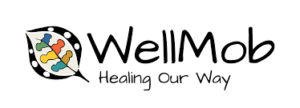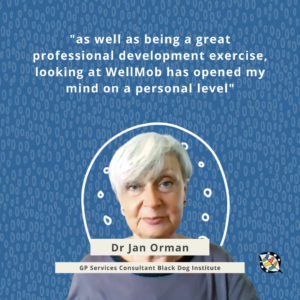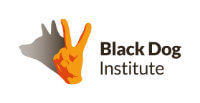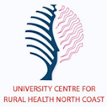Sign up below to receive monthly eMHPrac newsletters and updates about the latest digital mental health news, events, and resources.

Having a baby is a time of great adjustment, and it’s no secret that many mothers (up to one in five) struggle with perinatal anxiety and depression. While an increasing number of treatment programs and support options for mums have emerged in recent years (such as MumSpace, MumMoodBooster and the MindMum app), there has long been an obvious gap in the treatment for dads, who can also suffer; according to Perinatal Anxiety & Depression Australia (PANDA), up to one in 10 new dads suffer from perinatal anxiety and depression.
While dads have traditionally been under-serviced in the area of perinatal mental health, Australian digital services are helping to change this. The Parent-Infant Research Institute (PIRI) have created DadSpace, mirroring MumSpace in providing support for the emotional health of dads who are expecting or have a new baby.
In a world-first, DadSpace also includes support for dads who are experiencing symptoms of depression and anxiety via a new online treatment program DadBooster, a specialised online treatment based upon a cognitive behavioural therapy (CBT) approach.
Earlier this year, a team at the University of Newcastle also secured national funding and partnership for ‘SMS4dads‘, a free service providing info, tips and encouragement that speaks directly to new dads. Read more in this edition.
In this edition:
- New service portal: ‘Dadspace’
- ‘SMS4dads’ – A simple idea to support dads
- dMH Research; Calling all clinicians – your input is needed!
- WellMob – worker testimonials
- Updates from MindSpot – teletherapy trial and new website unveiled
- See the eMHPrac team at these upcoming conferences
- Read the latest dMH research articles
- This month’s featured service: MoodMission
New service portal: DadSpace
Created by The Parent-Infant Research Institute (PIRI), DadSpace is dedicated to supporting fathers across Australia. DadSpace provides information, strategies, tips, resources, and support specifically for dads who are expecting or have a new baby.
DadSpace also includes support for dads who are experiencing symptoms of depression and anxiety via an online treatment program DadBooster, a world-first specialised online treatment based upon a cognitive behavioural therapy (CBT) approach.
‘SMS4dads’ – A simple idea to support dads

Development at the University of Newcastle (but now including partnerships with PANDA, Red Nose and others), SMS4dads is a free service that provides info, tips and encouragement to men during pregnancy and early parenting – to help them understand and connect with their baby and partner.
Dads can join up from 12 weeks into a pregnancy and throughout the first year of parenthood. Once enrolled, Dads enter the expected date of delivery or bub’s birth date, so the texts are linked to the developmental stage of the baby.
The messages, developed by health professionals and researchers, are brief and can be received up to three times a week. Some provide tips and encouragement, others provide information about looking after baby or supporting their own or their partner’s wellbeing. Some messages have links to more information. First Nations Dads also receive a unique set of messages designed especially for them.
Interactive ‘check-in’ texts are also interwoven within the messages to find out how dads are coping, with appropriate referrals suggested for dads needing extra support.
Calling all mental health practitioners – your input is needed!
Griffith Uni Research – What Impedes Your Digital Mental Health Practice?
Calling all mental health practitioners in Australia to share their perceptions and feedback about using digital technologies in routine care. This study, ‘Barriers to Using Digital Mental Health’, explores the barriers practitioners face in adopting digital technologies with clients. Practitioner feedback about digital mental health use will pace the way for better implementation of these tools.
Australian mental health practitioners (including, but not limited to: mental health nurses, OTs, social workers, case workers, psychologists, GPs, psychiatrists, and decision-makers) are invited to complete an anonymous online survey, which should take approximately 10-15 minutes to complete. After completing the survey, participants can opt to enter a lucky draw to win exciting prizes.
SMS4dads Message Testing – do you work in perinatal mental health
Seeking clinician feedback on messages for dads whose partner experiences mental health distress
SMS4dads is developing a special set of messages to provide support to dads whose partners experience perinatal mental health distress.
If you’re a clinician working in perinatal mental health, you’ll be asked for three brief ratings about whether the draft messages are easy to understand, consistent with clinical practice, and suitable for a partner of a mother experiencing perinatal mental health distress.
For more information or to participate, please click below:

WellMob website: Tips from workers
The WellMob website is a digital library for our health workforce to easily find over 250 online resources on Indigenous wellbeing. These resources are particularly useful for non-Indigenous practitioners to use in and out of session with Indigenous clients around health literacy and promotion, as well as for their own professional development.
Looking for ways to use the digital resources found on the WellMob website in your work? Watch this series of short videos from health and wellbeing workers yarning about how they have used the WellMob website.

Featured video: Dr Jan Orman GP

A short video with Dr Jan Orman talking about using the WellMob website for her own personal and professional development.
As a non-Indigenous GP, Dr Orman shares her story about how online resources helped her learn about more Indigenous cultures.
To watch the other videos in this series, head to WellMob tips from workers to see how WellMob can be used in different health care settings.
And to stay up to date with Indigenous social and emotional wellbeing subscribe to WellMob’s e-newsletter and follow the team on Instagram and Facebook.

Updates from MindSpot
New website unveiled
As part of their digital transformation roadmap, MindSpot developed and launched their new website in early June 2022, aiming to make the consumer journey even easier and reduce barriers.
Teletherapy trial
In January 2022, MindSpot launched a trial of free, brief telephone therapy (four, 30 minute sessions) in order to better meet the needs of consumers. Five months later, ‘Teletherapy’ has shown promising outcomes and bring opportunities for evolving MindSpot’s service offerings.

Catch us at these upcoming conferences

Workplace Mental Health Symposium
22 – 24 August 2022, Sea World Resort Conference Centre Gold Coast QLD
The Workplace Mental Health Symposium covers discussions on all aspects of mental health and wellness at work, with the goal of creating a mentally healthy workplace, where all employees feel safe and supported.
Join the symposium in August for three days of keynote addresses, speaker presentations, panel discussions, workshops, and interactive exhibitor displays, and leave with the practical skills and knowledge you need to create a mentally healthy workplace.
International Mental Health Conference
5 – 7 September 2022, Gold Coast Conference Centre QLD
The International Mental Health Conference is a world-class forum for mental health practitioners to collaborate with national and international mental health leaders, while gaining tools to improve approaches to client care.
The eMHPrac team will be running a workshop entitled, ‘Utilising Digital Mental Health for Prevention and Early Intervention’ – catch us there or at our trade exhibit.
On our reading radar…
Evidence-informed is not enough: digital therapeutics also need to be evidence-based
Espie CA, Firth J. Evidence-informed is not enough: digital therapeutics also need to be evidence-based. World Psychiatry, 2022 Jun;21 (2):320-321. doi: 10.1002/wps.20993. PMCID: PMC9077620.
“We are witnessing exponential growth in a heavily capitalized digital health industry which promises to transform behavioural and mental health care. Consequently, it is critical that there is no ambiguity about the evidence standards necessary for the safe and effective treatment of psychiatric disorders through digital approaches. In our opinion, these standards should be essentially the same as for any other form of treatment, or even arguably higher, given the intrinsic likelihood of placebo effects in software products that are specifically designed for user engagement.”
Titov N, Dear BF, Bisby MA, Nielssen O, Staples LG, Kayrouz R, Cross S, Karin E. Measures of Daily Activities Associated with Mental Health (Things You Do Questionnaire): Development of a Preliminary Psychometric Study and Replication Study. JMIR Form Res. 2022 Jul 5;6(7):e38837. PMID: 35788101; PMCID: PMC9297144
“A large body of research has identified modifiable cognitions and behaviours (actions) associated with psychological health. However, little is known regarding the actions that are most strongly associated with psychological health or the frequency with which they should be performed.
…In study 1, factor analyses revealed that a 5-factor model comprising 27 items achieved an optimum balance between brevity and variance and accounted for 38.1%, 31.4%, and 33.2% of the variance in scores on measures of depression, anxiety, and satisfaction with life, respectively. The factors were interpreted as realistic thinking, meaningful activities, goals and plans, healthy habits, and social connections. These 5 factors were more strongly associated with psychological health than those such as practicing kindness, exercising gratitude, and practicing spirituality. This pattern of results was replicated across gender, age groups, and depression severity. “
This edition’s featured service…

Mood Mission
An app designed to help people cope with low moods and anxiety.
About Mood Mission
MoodMission is an app for low moods and anxious feelings that teaches users new and better ways of coping by suggesting ‘missions’, which are short, easily achievable coping strategies. Based on cognitive behavioural therapy (CBT) and other evidence-based psychological therapies, the app learns a user’s unique coping style and tailors future mission suggestions based on past successes.
Tailored workshops and presentations can be arranged for MoodMission personnel to visit organisations and practices where service providers can learn about how to best use MoodMission with their patients/clientele/consumers. For enquiries, visit www.moodmission.com.
Who is Mood Mission for?
MoodMission is for use with people of all ages, with a focus on late adolescence and early adulthood, and all mental health statuses – not just those with a clinically diagnosed issue.
Is there a cost to access Mood Mission?
The app has a small, one-time cost of $7.99 to download.
How to access Mood Mission?
MoodMission can be downloaded from the iTunes App Store and the Google Play Store.





